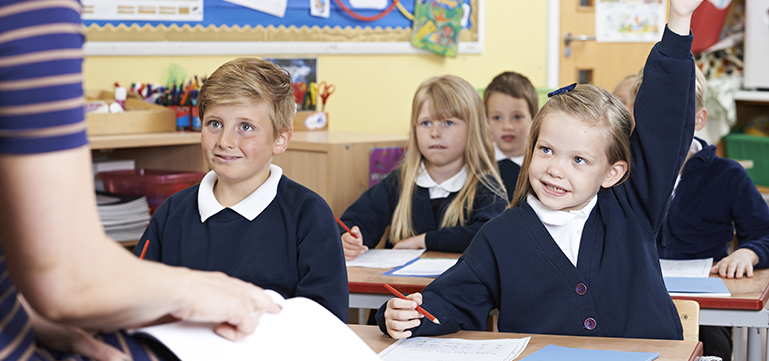School council developing pupils' welfare and setting a strategic direction

Information about the school
Ysgol Beca is a rural Welsh-medium primary school that is situated on the border between Carmarthenshire and Pembrokeshire. The school is divided into 3 mixed-age classes. The foundation phase is taught in one class and key stage 2 is taught as one department but with 2 qualified teachers in an open-plan learning area. Around 3% of pupils are eligible for free school meals and the school has identified around 17% of its pupils as having additional learning needs. A majority of pupils come from Welsh-speaking homes. Welsh is the school’s everyday language and the medium of teaching and learning. The headteacher has been in post since January 2009.
Context and background to the effective or innovative practice
When conducting a survey of the views of staff and pupils through questionnaires and informal meetings, it was identified that pupils are included successfully in making decisions about the school; however, very often, these decisions were in relation to charity work. Although pupils’ views were sought regularly, they were not given an opportunity to plan the way forward or solve challenges, unless they were members of the school council. As a result, only a few pupils were given an opportunity to inform the way forward for the school. This was an issue that the school decided to improve.
Description of nature of strategy or activity
Because Ysgol Beca is relatively small in terms of pupil numbers, the school decided to establish purposeful councils and ensure that the membership included as wide a cross-section of pupils as possible. Staff agreed to merge the school council and eco council, as much of both councils’ work overlapped. Two new councils were also established, namely ‘Criw Twm Tanllyd’, to work on the Welsh language charter’s priorities, and ‘Dewiniaid Digidol’ (Digital Wizards), in order to make progress towards the aspirations of the digital framework. A decision was made not to develop any more councils in order to maintain balance in terms of workload. At the beginning of the year, the councils created questionnaires by using ICT in order to identify the strengths and weaknesses in their areas of work. The councils’ priorities were included in the school development plan. The councils’ plans were discussed in governors’ meetings and their vision was shared with parents. During the year, the councils met regularly to evaluate developments in their work and to plan the way forward. In order to include the views of as many pupils as possible, ‘QR’ codes were used in each class in order for pupils to share their ideas. These allow pupils to submit ideas straight to the teachers’ HWB account, for example to identify what they would like to learn during the theme. There are also other specific QR codes around the school, which allow pupils to send their comments straight to the headteacher. These ideas are included in governor, staff and eco council meetings.
What impact has this work had on provision and learners’ standards?
The councils’ methods develop a sense of ownership and pride among the pupils towards their school. They realise that their ideas have an effect and that the staff genuinely listen to their comments. The staff identify to pupils examples of how their comments have led learning and activities, so that they ensure full commitment to the work. As a result, pupils have excellent commitment and enthusiasm towards the school’s life and work.
This activity has developed pupils as conscientious citizens, because they consider the whole school community in addition to their personal aspirations. They plan activities and consider the effect on the whole school community. Among their successes during the year, they have developed the learning areas in the school to provide an opportunity for pupils to reflect, develop physically, have created a safe haven for disabled children to reach the school and ensured that the site is attractive and elicits pride among all of the site’s users. ‘Criw Twm Tanllyd’ has succeeded in ensuring that Ysgol Beca has a wholly Welsh environment, ensured that all stakeholders are committed to the Welsh language and has gained the Welsh language charter bronze award. The digital crew has succeeded in raising pupils’ ICT skills by sharing good practice and ensuring that pupils and their parents have a sound understanding of e-safety.
How have you shared your good practice?
The school shares its practice with governors and parents through newsletters and specific meetings. The school will register this good practice on the ERW website through the Dolen platform.
Useful links
Other resources from this provider
